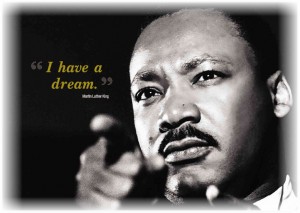I’ve warned creative writing students that they can’t expect that everyone will like their work. Some people may actively hate it. Who knows why? That’s just a writer’s life.
I’ve never thought about hate email, though, until I recently posted a blog on The Huffington Post titled “Why Don’t Jewish Lives Matter?” It was about the Charlie Hebdo and kosher supermarket massacres; I wondered whether the world would have been as outraged if the terrorists had only targeted the supermarket.
 By the time the blog had received close to 800 Likes, Facebook Shares, and shares on Twitter (it eventually more than doubled that), it also got plenty of vicious response, too. No surprise, there. People seem completely unashamed to parade their full range of prejudices on line, especially on places like The Huffington Post responses boards.
By the time the blog had received close to 800 Likes, Facebook Shares, and shares on Twitter (it eventually more than doubled that), it also got plenty of vicious response, too. No surprise, there. People seem completely unashamed to parade their full range of prejudices on line, especially on places like The Huffington Post responses boards.
I was surprised, though, to get a long,vicious email in my Inbox from someone apparently enraged by the blog’s title. This person’s screed was the same illogical slumgullion you see with all kinds of haters, while reading as if it were checking items off a list from Anti-Semitism for Dummies. In other words, vile, but totally unoriginal and cookie-cutter.
Naturally it started off by saying that Israel was the problem because of its treatment of Palestinians. This is classic post-war anti-Semitism because it blames all Jews everywhere for every action of every Israeli government. Are Americans responsible for the drone strikes deaths in Yemen and Pakistan? The half million dead in Iraq since the U.S. invasion?
As you might might expect, the ribbon on the package was the equation of Israelis with Nazis. See? All Jews = Israelis = Nazis. That explains everything. But the writer wasn’t done. There was more venom to spew. The other ridiculous charge was that Jews were misusing the Holocaust to their own ends and playing the victim. Charming, no? Finally it slid into some Old School Jew-hatred by labeling Jews as repulsive, arrogant, and unbearably cruel.
The email reeked of contempt, disgust, and brutality. A psychologist might see a writer with tremendous shame issues coping with that shame by expressing grotesque superiority over others. If you click the link to the original blog you’ll find comments just as vicious. These people clearly aren’t at all troubled by going public with their Jew-hatred, unlike the person who sent me the email. Feel free to guess why my correspondent wanted to write privately.
I started writing this blog on Martin Luther King Jr. Day and was moved to finish it because of the shootings in Copenhagen. King said that “Darkness cannot drive out darkness; only light can do that. Hate cannot drive out hate; only love can do that.” I’ve revered MLK since 4th grade, but I don’t think there’s enough light in the universe to bring these haters out of their own darkness? It makes them feel too good.
Lev Raphael is the author of 25 books, most recently Assault With a Deadly Lie, a novel of suspense. You can read about his other books at the Lev Raphael Amazon page.




